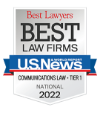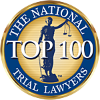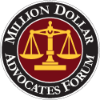Nursing Home Fraud Whistleblowers
Blowing the whistle on nursing homes that abuse Medicare, Medicaid, and TRICARE.
Blowing the whistle on nursing homes that abuse Medicare, Medicaid, and TRICARE.
The elderly are some of the most vulnerable people in our society. They are also an easy target for scammers. This type of fraud is so prevalent that the National Council on Aging calls scams targeting seniors “the crime of the 21st century,” and number one on that list is Medicare/Medicaid and other healthcare fraud.
When you think of the kind of person that would defraud the elderly, your mind may conjure up images of smooth talkers on the phone or shady people behind computer screens convincing a trusting senior to give up private information.
But what if the senior scammers, fraudsters, and thieves are some of the nursing home corporations who promise to care for them?
And it’s not just our elders who are victims in this case. Medicare, Medicaid, and TRICARE (military healthcare benefits) are programs funded by taxpayer dollars, so millions of taxpayers like you who give up a part of every paycheck towards taxes are gravely affected by such dishonesty.
About 69.3% of nursing homes in the U.S. are for-profit, according to a recent study by the CDC – many of these are chains owned by large corporations. Who is keeping track of the quality of care at nursing homes and making sure they are accountable for their Medicare, Medicaid, and TRICARE billings? Who is making sure that the giant billion-dollar corporations that run for-profit nursing home chains are accurately and fairly charging the government for the services they tell the government they are providing for their residents?
The only person who may be able to hold fraudsters accountable in these cases is you.
If you work (or used to work) in a nursing home – whether you’re an administrator, someone who works in billing, a physical therapist, a nurse, or anyone else who witnessed or knew about the facility’s wrongdoing – we are here to help you to try to stop the fraud. When corporations or facilities misrepresent the condition of patients simply to extract more (taxpayer) money, we support honest whistleblowers who choose to report this conduct to the government.
And when you blow the whistle on corrupt nursing homes, we will work hard to try to stop their wrongdoing.
If your nursing home is involved with the kinds of fraud discussed below, please call Carolina Whistleblower Attorneys at 1-888-292-8852 or send us a message to have us call you.
Regulatory agencies – and the government as a whole – have many things to keep an eye on, and they are often understaffed and underfunded. In the absence of oversight, fraud can thrive. Here are just a few of the ways nursing home fraud can manifest, according to the National Whistleblower Center:
From 2013 to 2017, Saber Healthcare Group reportedly required directors and therapists at their nursing home facilities in North Carolina and other states to commit systemic fraud. Saber allegedly told their employees to place all newly admitted residents into the “ultra high” category of the now-outdated Resource Utilization Group (the category that brought the most Medicare reimbursement for nursing homes). This was directly contrary to Medicare regulations that state it covers only what is “reasonable and necessary for the diagnosis or treatment of illness or injury.”
The Saber whistleblowers, or the “relators,” claimed that even if the residents did not need or could not tolerate therapy at that level, they were still instructed by the facility to categorize residents at that level. Moreover, some of the therapy services they provided were unrelated to that individual’s medical needs.
Saber settled for $10 million rather than have the federal government pursue a verdict. The three whistleblowers who alerted the U.S. government of the wrongdoings were awarded with $1.75 million of that settlement,1 and Saber will be required to submit to reviews of their Medicare billings and transactions in the coming years.3
Fraudulent billings to the government occur far too often in South Carolina, too. In one recent case, an owner of six nursing homes defrauded state Medicaid for more than $1 million in overpayment over two years.3 Those were your taxpayer dollars, dollars that should go to provide real nursing home care to seniors who can’t otherwise afford it.

Fraudulent government billing by nursing homes – often among chains run by faceless mega-corporations – is rampant. Here are some cases of nursing home chains and their parent companies that have settled claims3 after being outed by a whistleblower:
When there is fraudulent use of taxpayer/government money, a whistleblower claim is called a qui tam claim, and the law that protects whistleblowers in qui tam claims is called the False Claims Act, or the FCA. There can be major financial incentives for a successful claim.
The federal False Claims Act and North Carolina False Claims Act both impose treble (or triple) damages on culpable defendants. These are what would protect you and allow you to bring a qui tam claim against your nursing home. With a nursing home whistleblower claim, you could receive up to 30% of the government’s recovery if your case succeeds.
How much you ultimately may receive depends on many factors, including:
We stand ready to help all potential whistleblowers who want to put an end to fraudulent practices, even those who may have some hesitations due to financial concerns. We want you to know that you will not be alone, and a successful claim can bring about great rewards. There is a time limit in which one can successfully report fraudulent behavior, so please don’t wait to call us.
Put your trust in Carolina Whistleblower Attorneys. We have helped the government recover millions of dollars, with a large chunk of that awarded to the whistleblowers we’ve represented.1
In one nursing home fraud case, then-US attorney Bill Nettles – who now leads our firm – reached a settlement with one of the country’s largest drug suppliers to nursing homes, PharMerica Corp., to resolve a whistleblower lawsuit. The corporation allegedly received kickbacks in exchange for forcing nursing home residents to switch to a specific drug, even when it didn’t meet their medical needs. After serving the public for many years as a government attorney and holding many fraudsters accountable, Bill started our firm to try to help private citizens get rewarded for doing the right thing.
Worried what happens after you blow the whistle? Our You-First policy explains what you can expect during the whistleblower process and how we will fight to protect your confidentiality as much as possible while you perform this public service. And we will use the full power of the law to try to prevent and fight back against any retaliation by your employer.
If you believe your nursing home is involved with Medicare, Medicaid, or TRICARE fraud, please call Carolina Whistleblower Attorneys at 1-888-292-8852 or send us a message here.
“Bill has the ability to ‘think outside the box’…which makes him extremely effective as an advocate for his clients.” 1 — Attorney who previously worked with Bill





If you’re wondering if it’s a good idea to speak with a whistleblower lawyer about what you know, let us set the record straight.
"*" indicates required fields